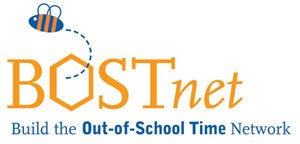A few months ago a recently convened task force of national policy experts launched a campaign aimed at improving education policies to address the achievement gap nationwide—“A Broader, Bolder Approach to Education.” The task force is co-chaired by Helen Ladd of Duke University, Pedro Noguera of New York University, and Tom Payzant of the Harvard Graduate School of Education and former superintendent of the Boston Public School District. The campaign is significant in that it challenges the current approach to education reform under No Child Left Behind and argues that in order to improve education and youth development for disadvantaged children we must move beyond a limited school improvement strategy.
Supported by a diverse group of 60 education, policy, religious and economic leaders, the basic premise of the campaign is that schools are not equipped to address the achievement gap and get children on the pathway to success. As co-chair Noguera notes, “After six years, it has become clear that No Child Left Behind has not succeeded in improving the quality of education available to America’s neediest children. This Task Force is united around the need for a more comprehensive approach to federal policy that specifically responds to the needs of children and schools in low-income areas. Our ‘Bold Approach’ identifies critical community support systems that can effectively work to narrow the disheartening achievement gap that exists in America.” As the task force’s policy statement makes clear that the prevailing assumption that bad schools are the cause of achievement gap and that school reforms based on standards, testing and accountability are flawed and need to be addressed head on.
Backed by a preponderance of evidence from research over the past 10 years, the Task Force argues for an expanded concept of education that addresses, directly, the importance of both formal and informal education, as well as other support services such as health and social development. Specifically, the Task Force puts forth four key recommendations:
1. Continue School Improvement Efforts: Research continues to point to the necessity of smaller class sizes, high-quality teacher training and support, better coordination between grades, curriculum improvements, and more attention to the special needs children, including recent immigrants, to improve achievement.
2. Increase Investment in Developmentally Appropriate and High-Quality Early Childhood, Pre-school, and Kindergarten Education: Investing in early education and care must be the foundation of any education policy approach.
3. Increase Investment in Health Services: Expand health services for low-income families, potentially through full-service health clinics located in schools, to provide all preventative and routine pediatric, dental, and optometric care for infants, toddlers, and school-age youth in order to minimize the effect of health problems on school success.
4. Pay More Attention to the Time Students Spend Out of School: Build on the research that shows that much of the achievement gap is rooted in what happens out of school. Increase investments in afterschool programs, summer programs, in-school enrichment programs, school-to-work programs and other opportunities that have a track record of success. Moreover, these programs should be empowered to provide a range of social, cultural, organizational, athletic and academic supports.
The report recognizes the need for accountability, but argues that the emphasis on test scores is has weakened schools. New accountability systems should be developed that combine a range of qualitative and quantitative methods that targets both academic and developmental indicators. As we gear up for another round of budget debates and policy work, we hope everyone has an opportunity to read “A Broader, Bolder Approach to Education.” It is the latest in a growing chorus of advocates who are pushing our policymakers to be champions of a more holistic approach to education and youth development for all children and youth in the State of Massachusetts. For more information, visit: www.boldapproach.org
